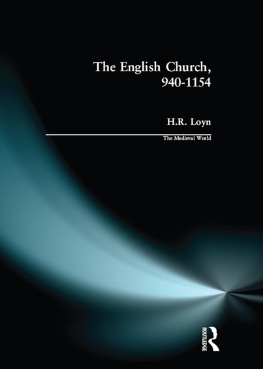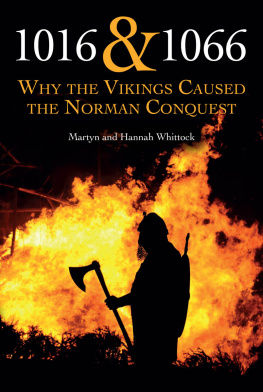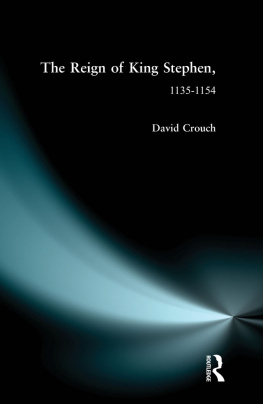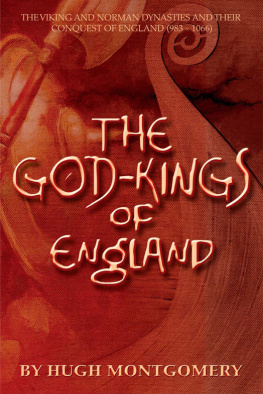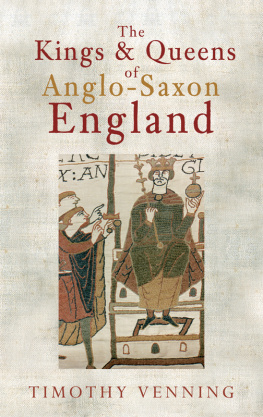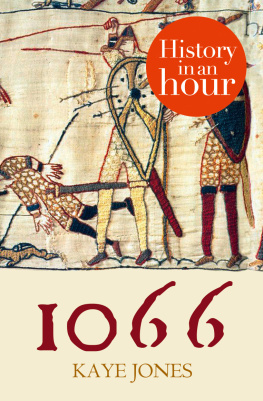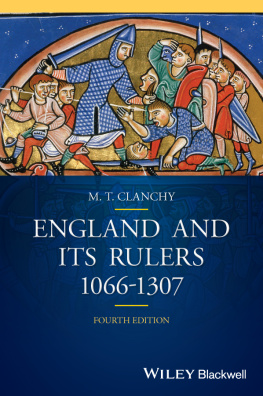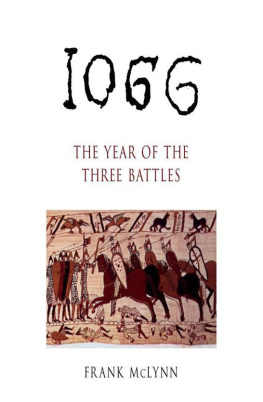Ruling England 10421217
Ruling England, now in its second edition, is a key text for students wishing to understand the complexities of medieval kingship in England from 10421217. Beginning just before the Norman Conquest, and ending with the issue of Magna Carta, this book is divided into three parts: Late Anglo-Saxon England, Anglo-Norman England and Angevin England. Richard Huscroft considers the reign of each king during these periods, including their relationships with the nobility, local government, the courts and the Church and poses the central question of how the ruler of the most sophisticated kingdom in twelfth-century Europe was eventually compelled to submit to the humiliation of Magna Carta at the start of the thirteenth.
This new edition has been fully revised and updated to take into account the latest scholarship. Throughout the book key areas of historiographical debate are highlighted and analysed, including nationhood, feudalism and Magna Carta. The narrative is supported by maps, a genealogy of the kings of England, a chronology, a glossary and an introduction to the principal narrative sources and their authors to provide a thorough introduction to the political history of medieval England.
This book will be essential reading for students of English medieval history.
Richard Huscroft teaches history at Westminster School. His previous publications include The Norman Conquest: A New Introduction (2009) and Expulsion: Englands Jewish Solution (2006).
Ruling England 10421217
Second Edition
Richard Huscroft

Second edition published 2016
by Routledge
2 Park Square, Milton Park, Abingdon, Oxon OX14 4RN
and by Routledge
711 Third Avenue, New York, NY 10017
Routledge is an imprint of the Taylor & Francis Group, an informa business
2016 Richard Huscroft
The right of Richard Huscroft to be identified as author of this work has been asserted by him in accordance with sections 77 and 78 of the Copyright, Designs and Patents Act 1988.
All rights reserved. No part of this book may be reprinted or reproduced or utilised in any form or by any electronic, mechanical, or other means, now known or hereafter invented, including photocopying and recording, or in any information storage or retrieval system, without permission in writing from the publishers.
Trademark notice: Product or corporate names may be trademarks or registered trademarks, and are used only for identification and explanation without intent to infringe.
First edition published 2005 by Pearson Education Limited
British Library Cataloguing-in-Publication Data
A catalogue record for this book is available from the British Library
Library of Congress Cataloging-in-Publication Data
Huscroft, Richard, author.
Ruling England, 10421217 / Richard Huscroft. 2nd edition.
pages cm
Includes bibliographical references and index.
1.Great BritainHistoryNorman period, 10661154.2.Great BritainHistoryAngevin period, 11541216.3.Great BritainHistoryEdward, the Confessor, 10421066.4.Power (Social sciences)Great BritainHistoryTo 1500.5.Great BritainPolitics and government10661485.6.Great BritainPolitics and government4491066.I.Title.
DA195.H96 2016
942.02dc23
2015030047
ISBN: 978-1-138-78654-7 (hbk)
ISBN: 978-1-138-78655-4 (pbk)
ISBN: 978-1-315-65967-1 (ebk)
Typeset in Bembo
by Apex CoVantage, LLC
Contents
Part I
Late Anglo-Saxon England, 10421066
Part II
Anglo-Norman England, 10661154
Part III
Angevin England, 11541217
I am very grateful to have been given the chance to revise and update this book. I have been able to correct some of my mistakes, amend some of my opinions and incorporate some new ideas from the most recent work on this period. My reliance on the historians who continue to produce original and ground-breaking work is acknowledged in the revised Suggestions for further reading section. In the main body of the book, I have expanded a few of the chronological sections so as to give some of the reigns more attention; there is now a short section on the Primacy Dispute, my discussion of King Stephens relationship with the Church has been extended, and there is one extra Debate on the late Anglo-Saxon state.
A decade on, my original dedication still holds firm. My sceptical pupils continue to question and challenge. My loving family continues to support and inspire.
This book is about the exercise of political power in England from the beginning of the reign of Edward the Confessor to the beginning of the reign of Henry III. Consequently it deals overwhelmingly with the affairs of the kings of England, how they tried (some more successfully than others) to rule their kingdom and the relationships they had with their political lites. Although it addresses wider developments in culture, society and the economy, and by no means ignores those social groups below the level of the governing classes, these are not areas with which I have been mainly concerned. This emphasis on high politics and government has been deliberate, in part because of limited space, but more because I believe strongly that there is merit in such an approach. Of course it is possible to study the history of a period from any number of perspectives, but, in my opinion, social, economic and cultural developments are more readily comprehensible if they are based on a solid understanding of mainstream politics.
I am also aware that the prominence I have given to England fails to do justice to the efforts made by historians over the past thirty years or so to construct the wider history of the British Isles and those parts of the continent ruled by the English kings during this period. Again, the available space meant that a longer and broader discussion was impossible. However, I also think that specifically English history is still a valid area of study, especially at a time when Englands future within the United Kingdom is as uncertain as the United Kingdoms future within Europe. Therefore, my intention has been to provide a basic yet still challenging introduction to the main political events and developments of this hugely important period. I hope it will be useful to A-level students and new undergraduates taking relevant courses, and to enthusiastic amateur historians who have heard of the Battle of Hastings and Magna Carta, but are otherwise largely unfamiliar with England during these years. I also hope it will be stimulating enough to be of interest to students and professionals who already have a working knowledge of the areas I have covered.
The book is divided into three parts: Late Anglo-Saxon England (104266), Anglo-Norman England (10661154) and Angevin England (11541217), and each part is subdivided into four chapters. The first chapter in each part contains an outline reign-by-reign narrative of the principal political events. I have attempted to make these chapters as neutral as possible in order to give readers a basic, uncontroversial idea of what happened and when. The other three chapters in each part are more thematic, and they deal in turn with developments in central and local government, the law and in the kings relationship with the English Church during the periods in question. From time to time, I have also included discrete, short discussions of relevant areas of historiographical controversy. These are not intended to be comprehensive syntheses of all the available views on a particular subject; but they are supposed to be helpful and provocative, and to introduce students to some of the ways in which historical debates might be discussed. A chronology has also been provided at the start of the book, as well as a brief account of the main narrative sources and some suggestions for further reading at the end.


